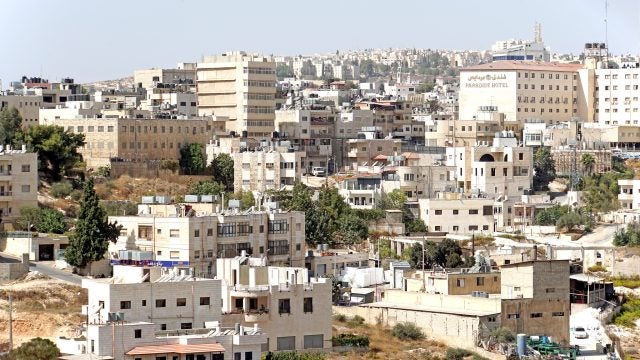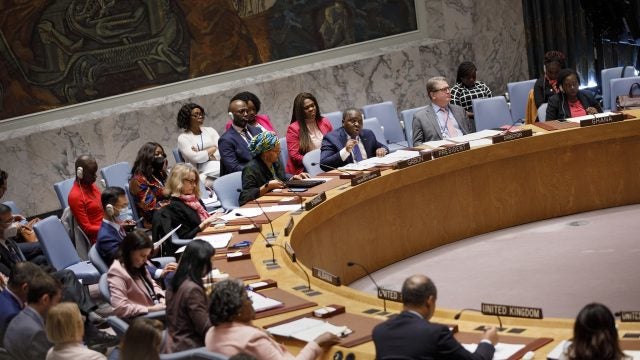
Title: The Potential Implications of the Two-State Solution Act
The Two-State Solution Act proposed by Congressman Andy Levin (MI-09) in late September may have declarative value even if it does not pass. By indicating the United States’ preferred policy regarding a solution to the Israeli-Palestinian conflict, condemning settlement building in the occupied territories, and drawing a clear line between Israel and the territories occupied in 1967, the bill may serve as a warning to Israel’s new government that future aid—even military aid—may be threatened if Israel continues to create obstacles to the realization of the two-state solution.
The Two-State Solution Act, proposed by Congressman Andy Levin (MI-09) and co-sponsored by several other Democrat lawmakers, may not garner enough votes to pass, but the government of Israel would be wise to take note of its provisions. The content of the proposed bill has both declarative and operative messages that could impact US-Israel relations, specifically with regard to US assistance to Israel and US attitudes toward settlement building and Palestinian house demolitions undertaken by the Israeli government in the occupied territories. Indeed, in several clauses, the proposed legislation clearly demands a distinction be made between Israel and the lands occupied in 1967 – a distinction that was also demanded by the 2016 UNSC Resolution 2334 (which the US abstained from rather than veto).
The bill places US policy regarding the conflict on a clear path: achievement of the two-state solution. It repeatedly states that US policy must view the two-state solution as the only viable solution to the conflict and opposes aid that might “impede achievement” of this goal. Israel’s current leadership might eschew such a policy, however, if this bill or one like it were to be adopted; such a refusal might be regarded as contradicting and defying the position of the country’s strongest and most important ally. Operatively, as stated in the bill, this could jeopardize US aid as well as diplomatic support, whether at the UN (as demonstrated in the past with regard to 2334) or in other international bodies. Further, the bill clearly links US aid, including security aid, with Israel’s adoption of steps that would facilitate progress toward a two-state solution. Some of these steps include the cessation of building in the occupied territories, the demolition of Palestinian homes, and other infringements on Palestinian rights.
The most salient sections of the proposed bill, from the Israeli perspective, are those that directly speak to aid, including security assistance to Israel. This is not to say that diplomatic assistance, especially within the context of international organizations, is not important to Israel, but it is most unlikely that any Israeli government–no matter how right wing or ideologically motivated–would be willing to forego Washington’s provision of security assistance. The bill demands that the US government challenge any use of US aid for settlement building and human rights abuses, citing the Foreign Assistance Act of 1961, which “mandates that international security assistance programs ‘promote and advance human rights,’” and restricts aid from flowing to programs or governments that are “in violation of international law or in contravention of the policy of the United States.” Restrictions to aid, in connection with settlement construction, were applied previously in 1974 and 1975, when Israel sought loan guarantees for the absorption of new immigrants from the former Soviet Union. Then, and presumably once again, the possibility of this type of legislation could serve as a formidable warning to Israel regarding settlement building. In fact, the bill imposes a limitation of support for activities or projects to areas under Israeli administration before the 1967 war. The bill also opposes the labeling of products from the settlements as “Made in Israel,” and urges that language be employed to distinguish between the occupied territories and Israel proper. Perhaps less binding, a further measure “urges” the US Department of State to “ensure” with Israel that equipment provided through US assistance will not “in any way undermine the prospects for a negotiated two-state solution.”
Of course, there are many interpretations of what might undermine future peace between Israelis and Palestinians, but the intention of the Two-State Solution Act is clear: it is a warning to Israel that aid will be supervised and tested against the preferred US policy of two states. The Department of State and other government agencies will be tasked with “taking steps,” that is, acting to ensure implementation of the policy, and to prevent obstructions or violations of US policy by Israel. Israeli settlement building in the occupied territories is singled out several times and defined in the bill as illegal according to international law. The Israeli government has recently announced its intentions to build more settlements, but if the US were to formally resume its opposition to settlement building and limit assistance, even only of a diplomatic nature, Israeli plans would most likely be seriously reconsidered.
In the past, US objections delayed some Israeli enterprises in the occupied territories, including the building of the settlement of Ras al Amud in east Jerusalem or Har Homa, just south of Jerusalem. It is true that these and other projects were only delayed, not prevented, due to Israeli concerns over the US reaction. In addition, the “settlement freeze” instigated by the Obama Administration in 2009 was met with settlement expansion by former Prime Minister Benjamin Netanyahu’s government. As a former leader of the settlement movement, Prime Minister Naftali Bennett might well proceed with settlement building despite the clear US position as expressed in the proposed bill. But it might also be the case that Bennett will hesitate to move in a fashion so blatantly contradictory to the position of Congress, especially if US aid might be threatened. Israel is not dependent only on the United States. In theory, the EU, for example, has a good deal of economic power vis a vis Israel. But only US power, and the power of Congress over foreign aid, has been considered in the past (e.g., 1974-75[1]).
In order to understand the impact of this bill within the context of Israel’s domestic politics, it is important to note that while Bennett’s political base is composed mainly of settlers, the settlement enterprise is not a popular one overall. Many Israelis would prefer to see the limited resources at the disposal of the Israeli government focused elsewhere. In addition, a majority of Israeli Jews view settlements as an obstacle to peace or at least as an unwise policy. Security is usually the overriding factor in public opinion, and, understandably, in this area the view of the army is of supreme importance. If the bill is actually passed, with its clauses linking security aid to policy, the Israeli military can be expected to see the legislation as problematic given the high priority Israel attaches to security and military aid. It is this concern, both among the Israeli military and the public, that may provide significant influence in Israel for the law, if enacted.
Congress may be on the verge of passing much more than a merely declaratory statement on policy, carrying far more weight in Israel than the many UN resolutions and statements by international agencies seen in the past. However, even if the bill does not pass, the strong sentiment in favor of the two-state solution among many US politicians, along with impatience with Israeli policies that might impede the achievement of such a solution, could lead to a reconsideration in Israel of policies that contradict American policy.
[1] A six month “reassessment” constituted pressure by the Ford administration on Rabin to make the 1975 Interim Agreement with Egypt. Some 99 Representatives in Congress opposed Ford’s position, but Rabin acquiesced after the US added American involvement to the implementation.
…
Galia Golan is professor emerita and former chair of the Department of Political Science at the Hebrew University of Jerusalem. Her most recent book is Israeli Peacemaking since 1967: Factors Behind the Breakthroughs and Failures, Rutledge, 2014.
Image Credit: “jerusalem cityscape” by jasonwain is licensed under CC BY-NC-SA 2.0
More News

This article explores how the Palestinian crisis and the death of the two-state solution endangers the Hashemite Kingdom of Jordan. It illuminates the complicated relationship between Jordan, Israel, and Palestine…

This article explores the uncertain future of Arctic governance amid shifting global geopolitics. It argues that whether Washington and Moscow opt for confrontation or cooperation, multilateralism in the Arctic…

Twenty-five years ago, the United Nations Security Council adopted Resolution 1325, establishing a framework that underpins the Women, Peace, and Security (WPS) Agenda. The Resolution recognized both the…